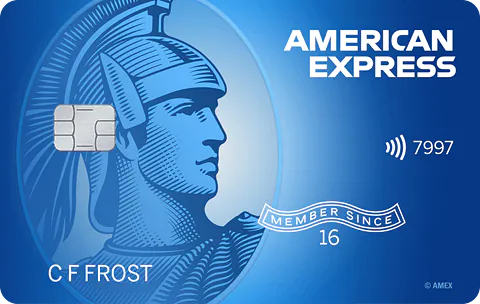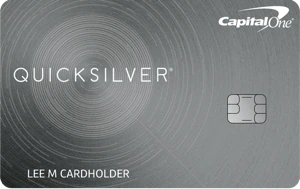- myFICO® Forums
- FICO Scoring and Other Credit Topics
- General Credit Topics
- Re: Is there any advantage (credit score) in letti...
- Subscribe to RSS Feed
- Mark Topic as New
- Mark Topic as Read
- Float this Topic for Current User
- Bookmark
- Subscribe
- Mute
- Printer Friendly Page
Is there any advantage (credit score) in letting a balance post and then paying it off?
Is your credit card giving you the perks you want?
Browse credit cards from a variety of issuers to see if there's a better card for you.
- « Previous
- Next »
- Mark as New
- Bookmark
- Subscribe
- Mute
- Subscribe to RSS Feed
- Permalink
- Report Inappropriate Content
Re: Is there any advantage (credit score) in letting a balance post and then paying it off?
@Snoopy916 wrote:well i have a little under $200k in available credit. I have a mortgage that started 1/21 ($1800 2.625%), car loan now ($1200 @5.99%, was $435 at 1.9% traded in) and a pool loan ($900/month about 8 months in 120 month loan, forgot the APR). Gross about $11k/month. I pretty much carry a zero balance on all cards, and have been the past 3 years or so. I run quite a bit of money through the cards (i'd say $10k a month), but never really let a balance post. Credit score is 723 (was 608 after BK), because i did have a BK in 2018, but nothing bad besides maybe excessive inquiries since.
Then what you should do is pay off almost all of the 15k before the statement cuts, but leave $100 on it until after the statement cuts. That way you won't get hit with the "all zero penalty".
































Total revolving limits 569520 (505320 reporting) FICO 8: EQ 699 TU 696 EX 673
- Mark as New
- Bookmark
- Subscribe
- Mute
- Subscribe to RSS Feed
- Permalink
- Report Inappropriate Content
Re: Is there any advantage (credit score) in letting a balance post and then paying it off?
@K-in-Boston wrote:
@K-in-Boston wrote:"High balance" is a credit reporting item, but not a scoring factor (outside of very old FICO models and charge cards).
@Beefy1212 wrote:
I disagree with KiB there is a fairly strong anecdotal pool of data points having highest balance reported leads to higher new approvals.I'm not sure what you are disagreeing with. High Balance is a field on credit reports and not a scoring factor (again, excluding older models where it is used to calculate the "credit limit" of NPSL cards).
Poor word choice on my part, it is not scoring metric, though it could be a benefit to credit profile. With my point ultimately being let it report pay it off and take the extremely short hit to score for potential benefits down the road.














- Mark as New
- Bookmark
- Subscribe
- Mute
- Subscribe to RSS Feed
- Permalink
- Report Inappropriate Content
Re: Is there any advantage (credit score) in letting a balance post and then paying it off?
@Horseshoez wrote:
@K-in-Boston wrote:Only a few lenders report mid-statement balances as high balance if they are greater than the statement balance.
Hmmm, well then I guess all of my financial institutions report high balance.
My plethora of cards report as a mixed bag any where from no data submitted to mid cycle highest balance to statement balance reported but last payment made being many times higher than stated highest limit.














- Mark as New
- Bookmark
- Subscribe
- Mute
- Subscribe to RSS Feed
- Permalink
- Report Inappropriate Content
Re: Is there any advantage (credit score) in letting a balance post and then paying it off?
@Beefy1212 wrote:
@Snoopy916 wrote:thanks I think this was the answer I was looking for. Was just hoping there might be a slight long-term advantage in paying off a "loan", as opposed to not having the loan in the first place.
I disagree with KiB there is a fairly strong anecdotal pool of data points having highest balance reported leads to higher new approvals.
I only have my own 50+ years with having credit cards.
I hate being in debt, pay off any CC when balance hits a few thousand.
Never had a CC report more that that.
I think my high might be this month, $3,400 on AOD
My average balance is a few hundred on 2 - 3 cards.
Had starting credit limits of $35,000 and cards grow to over $50,000.
I have a very hard time believing high reported balance mean's very much
They are looking at income, payment history, age, etc.
Maybe what CL other issuers have you at.
While the card issuer may not depend on that information for limit increases new accounts tend to look at how much credit you have used for determining starting limits.
Conceptually think of it this way...
you have a 500 dollar card every you never report a higher balance than 50 bucks, you might spend 5k a month on the card but you never run the limit up the next lender sees a 500 dollar limit and only 50 bucks used and assumes you don't need more than 500 dollars.
Conversely you have a 10k limit and have posted a 9,500 dollar balance the new lender wants that spend and offers you the same or a higher limit.Now the issue here is not every lender reports your highest balance regardless of whether you let it report on statement close some lenders report highest balance but only reports the highest statement balance and some lenders don't report that field at all.
Then you have no idea if your new lender cares about historical balances at all.
What is clear reporting a one time high balance will have no long term effect on your report or score.
TLDR; It might help you depending on a number of factors, but worst case it doesn't hurt your profile for more than a few weeks so might well let it report if you don't have anything major coming up, and having just bought a car my money is on you don't.
(Neg) A 90+% balance on a single card reported could cause AA form that lender or others by letting it post.
(Neg) Score drop for a few weeks
(Pos) Float of 3 week interest on $15,000
(Pos) Unlikely/unknown advantage of high reported balance
One has to balance the possible good vs the possible bad
Almost nothing in credit is one sided
- Mark as New
- Bookmark
- Subscribe
- Mute
- Subscribe to RSS Feed
- Permalink
- Report Inappropriate Content
Re: Is there any advantage (credit score) in letting a balance post and then paying it off?
@Kforce has a good point. And now thinking about it a little more, if you're wanting to post a somewhat higher balance than usual (to test those waters), maybe pay the majority of it off pre-statement, leaving only about 28% ($4200) to report. That keeps you under the 30% UTI threshold, and isn't as drastic as lenders suddenly and uncharacteristically seeing a full $15k report at once.
Sock Drawered



 On Deck: No Plans Currently
On Deck: No Plans Currently
- Mark as New
- Bookmark
- Subscribe
- Mute
- Subscribe to RSS Feed
- Permalink
- Report Inappropriate Content
Re: Is there any advantage (credit score) in letting a balance post and then paying it off?
@Kforce wrote:
I only have my own 50+ years with having credit cards.
I hate being in debt, pay off any CC when balance hits a few thousand.
Never had a CC report more that that.
I think my high might be this month, $3,400 on AOD
My average balance is a few hundred on 2 - 3 cards.
Had starting credit limits of $35,000 and cards grow to over $50,000.
I have a very hard time believing high reported balance mean's very much
They are looking at income, payment history, age, etc.
Maybe what CL other issuers have you at.
(Neg) A 90+% balance on a single card reported could cause AA form that lender or others by letting it post.
(Neg) Score drop for a few weeks
(Pos) Float of 3 week interest on $15,000
(Pos) Unlikely/unknown advantage of high reported balance
One has to balance the possible good vs the possible bad
Almost nothing in credit is one sided
So credit worthiness is not a monoculture you entered the age of fico scores with 2 decades of credit history, and what is true on your profile is likely often not true for someone else, would venture a guess multiple 35-50k cards is also supported by an unusually high income how one ends up at a result can take multiple paths. Your 50 years of history is in and of itself an outlier.
I would also point out maxing a 50k card likely is responded to very differently than a 10-20k card as well as how long each of those cards has been opened, had you actually let your actual spend report they likely won't bat an eye at larger balances briefly appearing, and that in and of itself would be an argument for why letting organic spend report is a good idea. That way if you ever actually had to use a card to its potential the danger of AA wouldn't exist.
constantly utilizing AZEO is what causes the very danger you are describing. It is also unnecessary if you are not constantly applying for credit, you are right nothing on a profile rarely happens in a vacuum. Letting balances report is ultimately good for your profile. Managing what is reported vs what is actually done is a dynamic and ever changing situation linked to many factors.
my take away here is you made the exact case for why you would want to report balances.














- Mark as New
- Bookmark
- Subscribe
- Mute
- Subscribe to RSS Feed
- Permalink
- Report Inappropriate Content
Re: Is there any advantage (credit score) in letting a balance post and then paying it off?
@Beefy1212 wrote:
@Kforce wrote:
I only have my own 50+ years with having credit cards.
I hate being in debt, pay off any CC when balance hits a few thousand.
Never had a CC report more that that.
I think my high might be this month, $3,400 on AOD
My average balance is a few hundred on 2 - 3 cards.
Had starting credit limits of $35,000 and cards grow to over $50,000.
I have a very hard time believing high reported balance mean's very much
They are looking at income, payment history, age, etc.
Maybe what CL other issuers have you at.
(Neg) A 90+% balance on a single card reported could cause AA form that lender or others by letting it post.
(Neg) Score drop for a few weeks
(Pos) Float of 3 week interest on $15,000
(Pos) Unlikely/unknown advantage of high reported balance
One has to balance the possible good vs the possible bad
Almost nothing in credit is one sided
So credit worthiness is not a monoculture you entered the age of fico scores with 2 decades of credit history, and what is true on your profile is likely often not true for someone else, would venture a guess multiple 35-50k cards is also supported by an unusually high income how one ends up at a result can take multiple paths. Your 50 years of history is in and of itself an outlier.
I would also point out maxing a 50k card likely is responded to very differently than a 10-20k card as well as how long each of those cards has been opened, had you actually let your actual spend report they likely won't bat an eye at larger balances briefly appearing, and that in and of itself would be an argument for why letting organic spend report is a good idea. That way if you ever actually had to use a card to its potential the danger of AA wouldn't exist.
constantly utilizing AZEO is what causes the very danger you are describing. It is also unnecessary if you are not constantly applying for credit, you are right nothing on a profile rarely happens in a vacuum. Letting balances report is ultimately good for your profile. Managing what is reported vs what is actually done is a dynamic and ever changing situation linked to many factors.
my take away here is you made the exact case for why you would want to report balances.
I like pushing the envelope.
Being this close to danger keeps me feeling alive.
- Mark as New
- Bookmark
- Subscribe
- Mute
- Subscribe to RSS Feed
- Permalink
- Report Inappropriate Content
Re: Is there any advantage (credit score) in letting a balance post and then paying it off?
@Beefy1212 wrote:
@Kforce wrote:
I only have my own 50+ years with having credit cards.
I hate being in debt, pay off any CC when balance hits a few thousand.
Never had a CC report more that that.
I think my high might be this month, $3,400 on AOD
My average balance is a few hundred on 2 - 3 cards.
Had starting credit limits of $35,000 and cards grow to over $50,000.
I have a very hard time believing high reported balance mean's very much
They are looking at income, payment history, age, etc.
Maybe what CL other issuers have you at.
(Neg) A 90+% balance on a single card reported could cause AA form that lender or others by letting it post.
(Neg) Score drop for a few weeks
(Pos) Float of 3 week interest on $15,000
(Pos) Unlikely/unknown advantage of high reported balance
One has to balance the possible good vs the possible bad
Almost nothing in credit is one sided
So credit worthiness is not a monoculture you entered the age of fico scores with 2 decades of credit history, and what is true on your profile is likely often not true for someone else, would venture a guess multiple 35-50k cards is also supported by an unusually high income how one ends up at a result can take multiple paths. Your 50 years of history is in and of itself an outlier.
I would also point out maxing a 50k card likely is responded to very differently than a 10-20k card as well as how long each of those cards has been opened, had you actually let your actual spend report they likely won't bat an eye at larger balances briefly appearing, and that in and of itself would be an argument for why letting organic spend report is a good idea. That way if you ever actually had to use a card to its potential the danger of AA wouldn't exist.
constantly utilizing AZEO is what causes the very danger you are describing. It is also unnecessary if you are not constantly applying for credit, you are right nothing on a profile rarely happens in a vacuum. Letting balances report is ultimately good for your profile. Managing what is reported vs what is actually done is a dynamic and ever changing situation linked to many factors.
my take away here is you made the exact case for why you would want to report balances.
1. It's just a guess as to whether allowing large balances report helps to impress lenders.
2. It's a fact that it does nothing positive for your scores.
3. In the days of the internet I see nothing 'natural' or 'organic' about letting balances report. Before the internet we relied on paper statements to know what we owed. Nowadays we don't have to wait that long, and some of us find it more 'natural' and 'organic' to pay what we owe sooner rather than later, so as not to have it hanging over our head.
































Total revolving limits 569520 (505320 reporting) FICO 8: EQ 699 TU 696 EX 673
- Mark as New
- Bookmark
- Subscribe
- Mute
- Subscribe to RSS Feed
- Permalink
- Report Inappropriate Content
Re: Is there any advantage (credit score) in letting a balance post and then paying it off?
I rarely pay down balances or pay them off early. Really no risk of adverse action allowing all charges to report on monthly statements when paying balance in full as long as the card utilization is kept under 70%.
Quite a few posters have taken advantage of multiple 0% interest promos at a time with no AA. They maintained high utilization levels over multiple months. A high UT% does negatively impact score - often substantally. However, it's only temporary while UT remains high.
Although high reported balances have no positive impact on score, they also have no negative implications. If anything, higher reported HBs reflect positively on the cardholders ability to manage their credit.
I support and practice having card balances report naturally. Rarely make early payments. As a result, my high balances are reflective of monthly spend on cards.
Fico 8: .......EQ 850 TU 850 EX 850
Fico 4 .....:. EQ 809 TU 823 EX 830 EX Fico 98: 842
Fico 8 BC:. EQ 892 TU 900 EX 900
Fico 8 AU:. EQ 887 TU 897 EX 899
Fico 4 BC:. EQ 826 TU 858, EX Fico 98 BC: 870
Fico 4 AU:. EQ 831 TU 872, EX Fico 98 AU: 861
VS 3.0:...... EQ 835 TU 835 EX 835
CBIS: ........EQ LN Auto 940 EQ LN Home 870 TU Auto 902 TU Home 950
- Mark as New
- Bookmark
- Subscribe
- Mute
- Subscribe to RSS Feed
- Permalink
- Report Inappropriate Content
Re: Is there any advantage (credit score) in letting a balance post and then paying it off?
"3. In the days of the internet I see nothing 'natural' or 'organic' about letting balances report. Before the internet we relied on paper statements to know what we owed. Nowadays we don't have to wait that long, and some of us find it more 'natural' and 'organic' to pay what we owe sooner rather than later, so as not to have it hanging over our head."
A fair and valid point I also find myself paying early and often not out of necessity, but habit and personality, I have the last few months been attempting to break my own inclination and let a true spend report more often.
that doesn't mean it makes sense to lenders, or fico metrics. I find it ridiculous a few 3-20 dollar balances from left over pending charges has an effect on your score as if 3-5 cards reporting a literal 5 dollar charge and a 0% utilization needs a negative reason code for accounts with balances as if you are somehow more in danger of defaulting. It doesn't have to make sense to us or feel natural or organic, but we are still beholden to it.
As for scores if you are not applying for credit does it really matter? Once your profile is established and your score well above thresholds for credit approval anyway should you really care if you lose even a rather significant amount of points? An 850 with 90 penalty points is still an awesome score, and is completely correctable in a few weeks anyway. Most credit products are available to someone over 700, and the best rates to those above 740, above that is largely padding and an emotional support score.
It is a guess if heavy reported usage impresses lenders, there are few metrics other than spotless payment history that we can definitely say always looks good to a lender. But as Kforce mentioned and I expanded on reporting spend does also protect you from adverse action due to unexpected heavy spend.
I think we have all said what we have to say thanks for the civil discourse.













